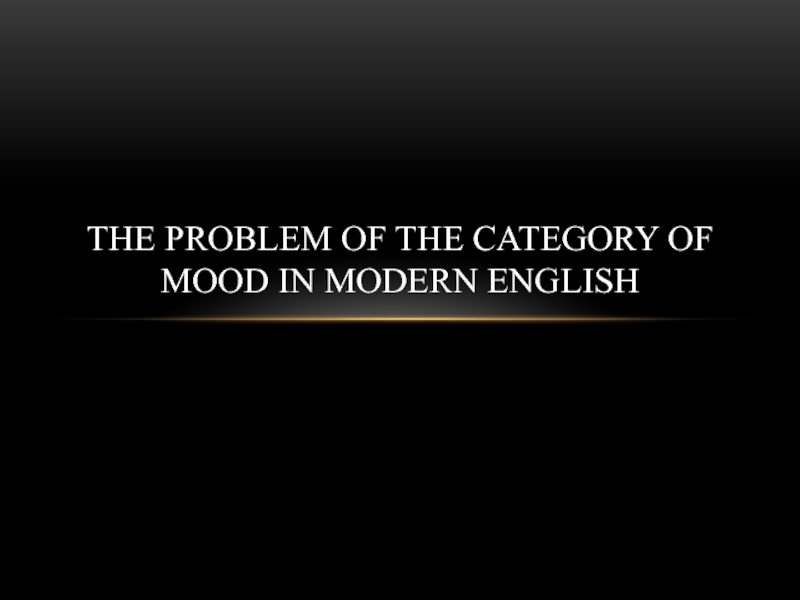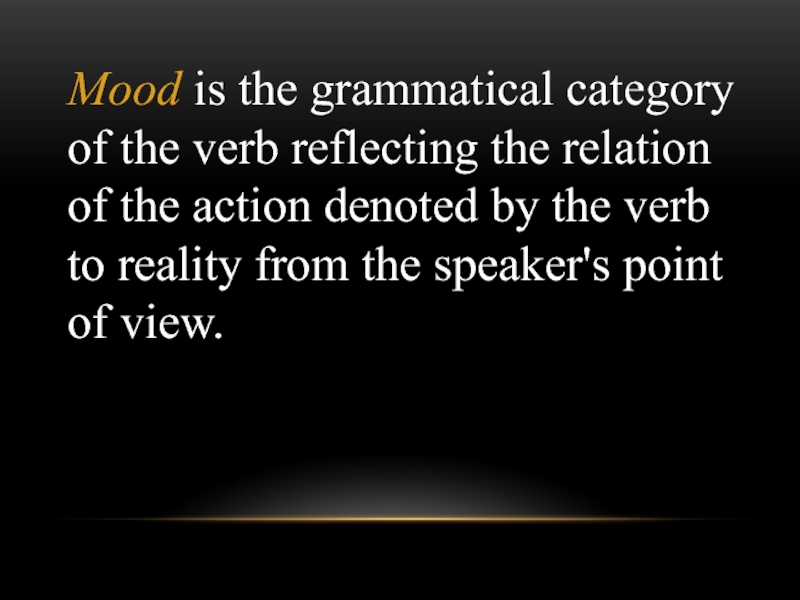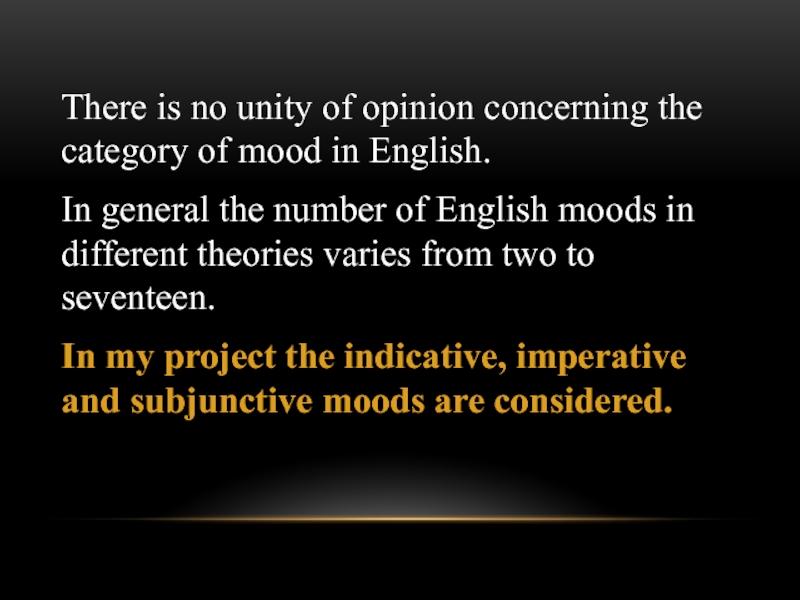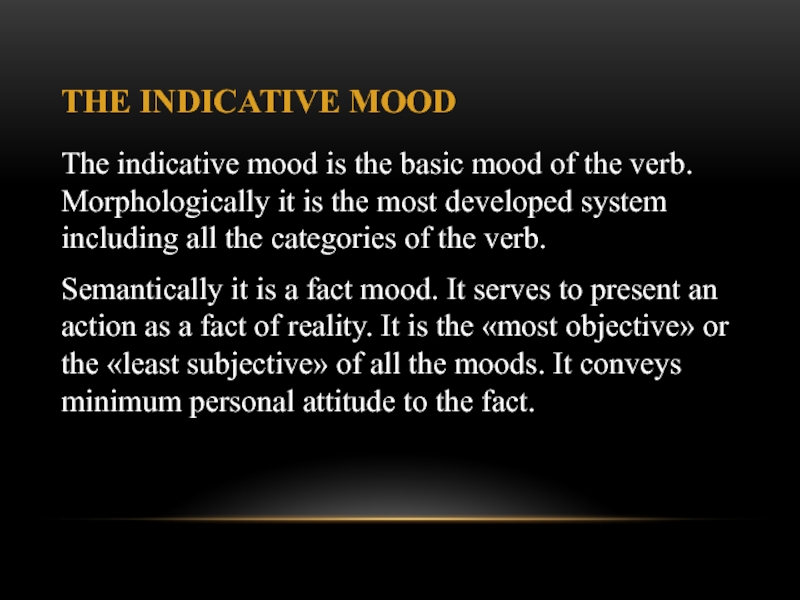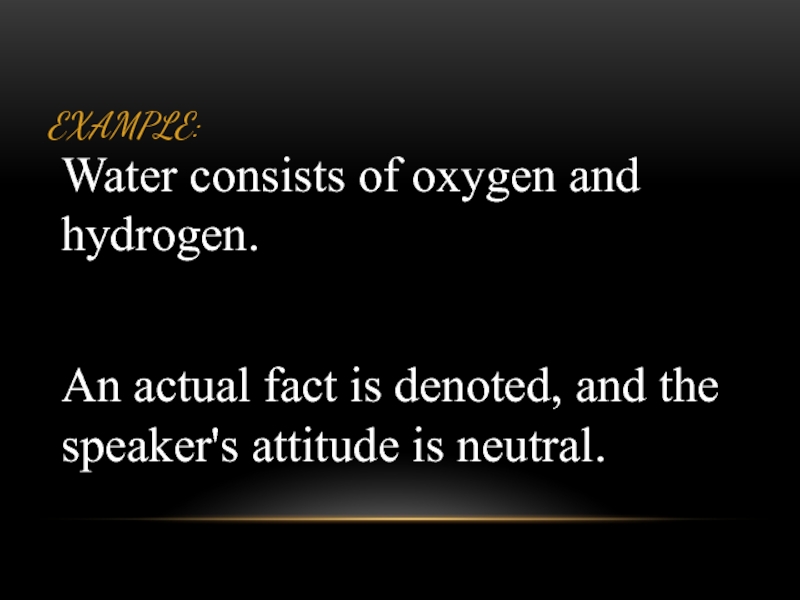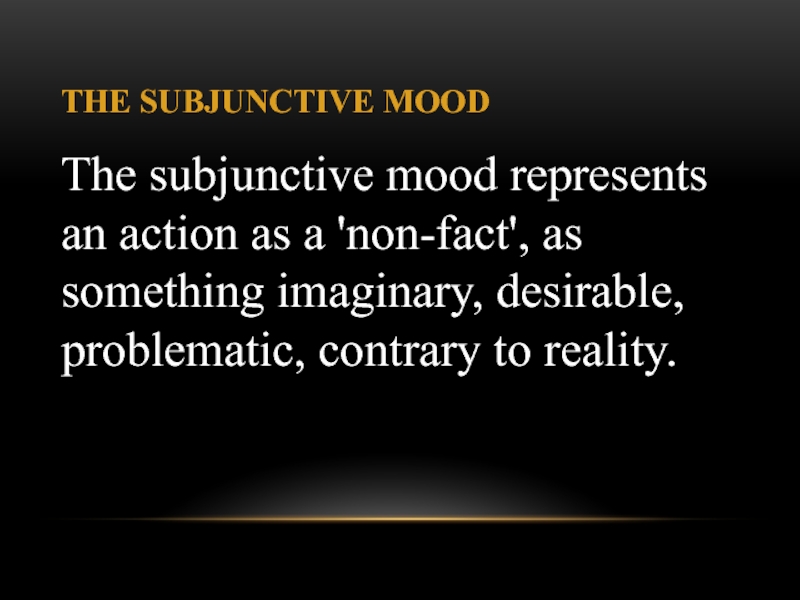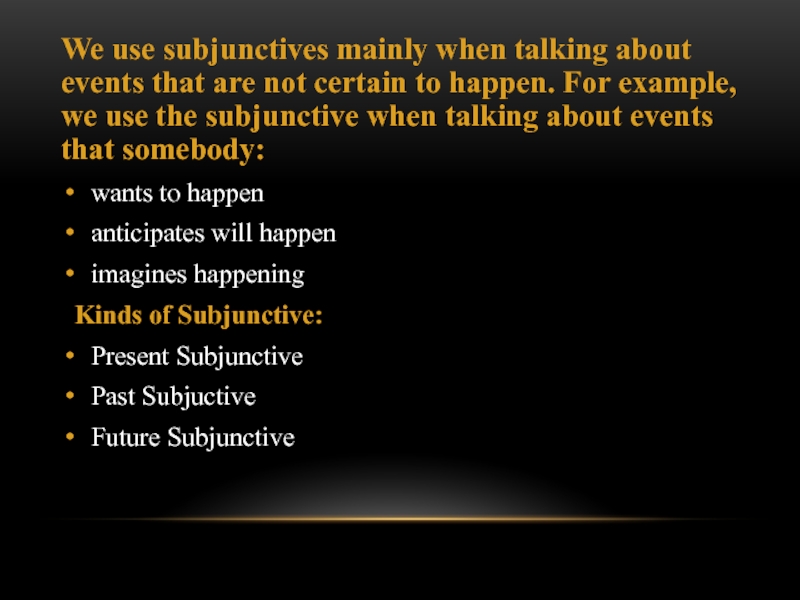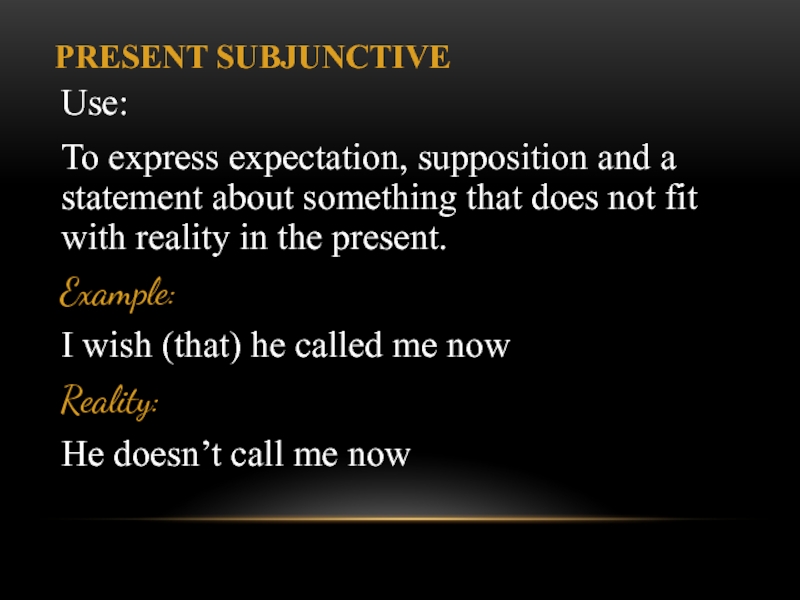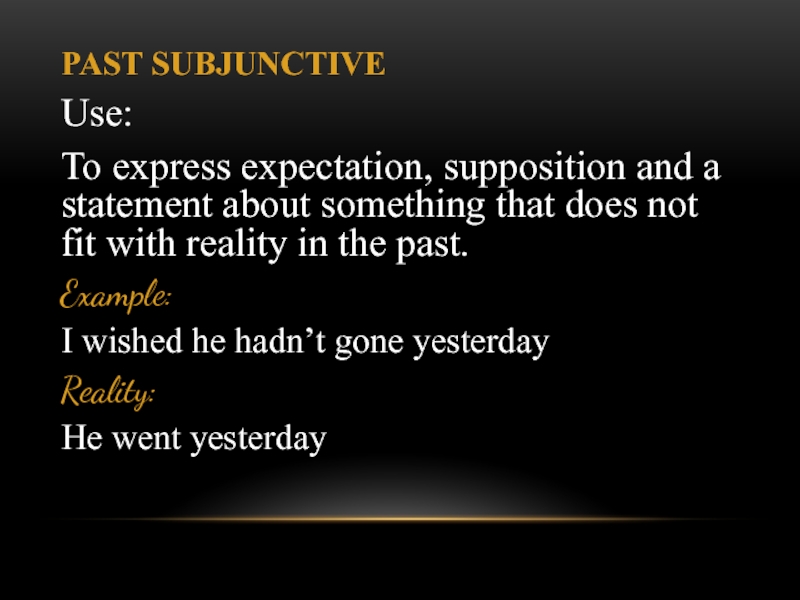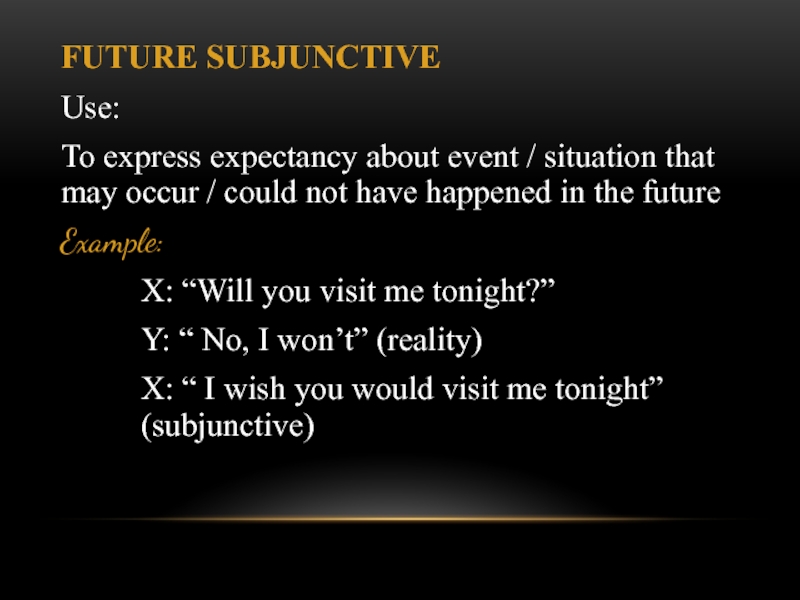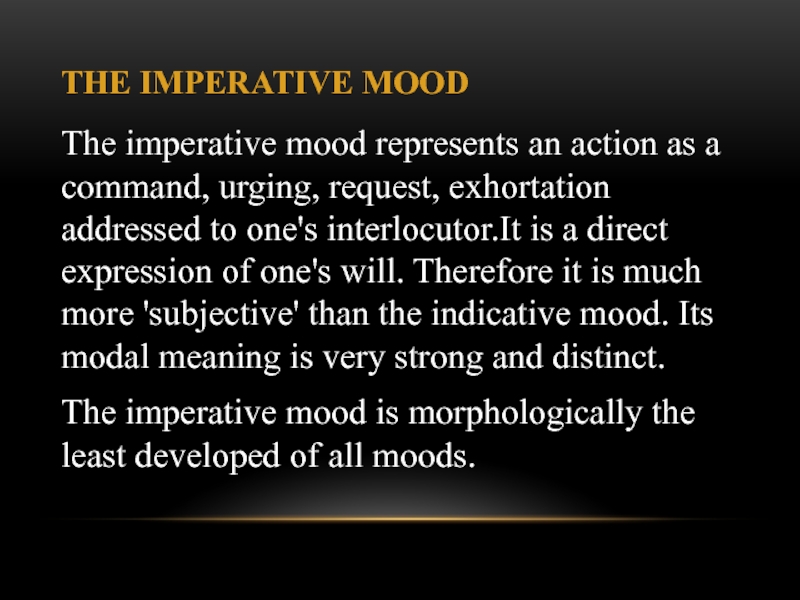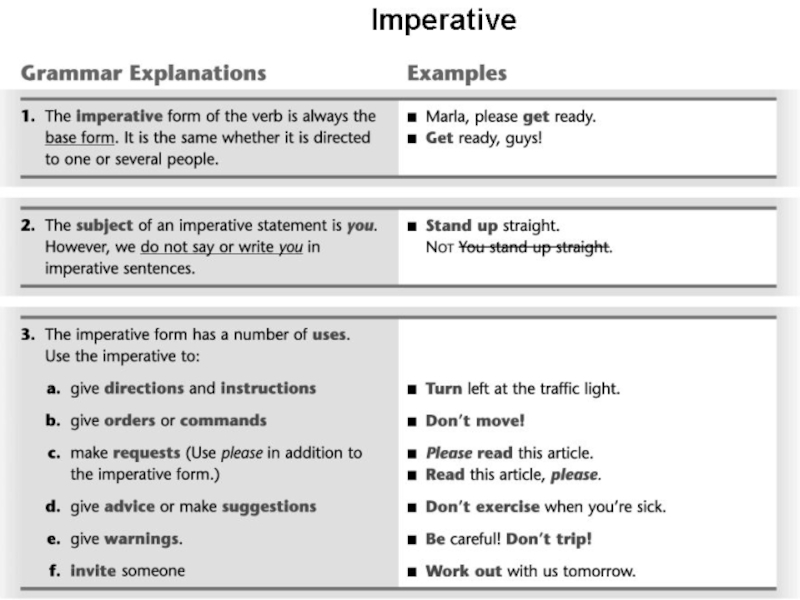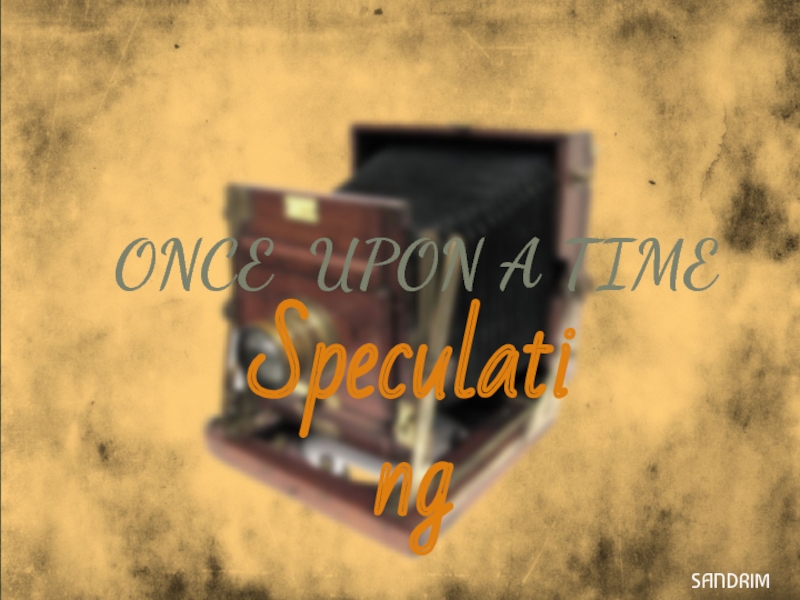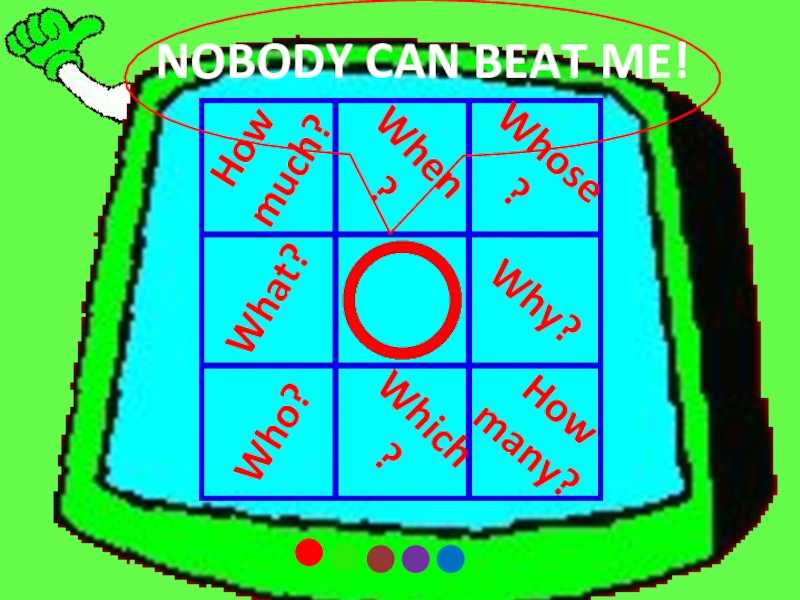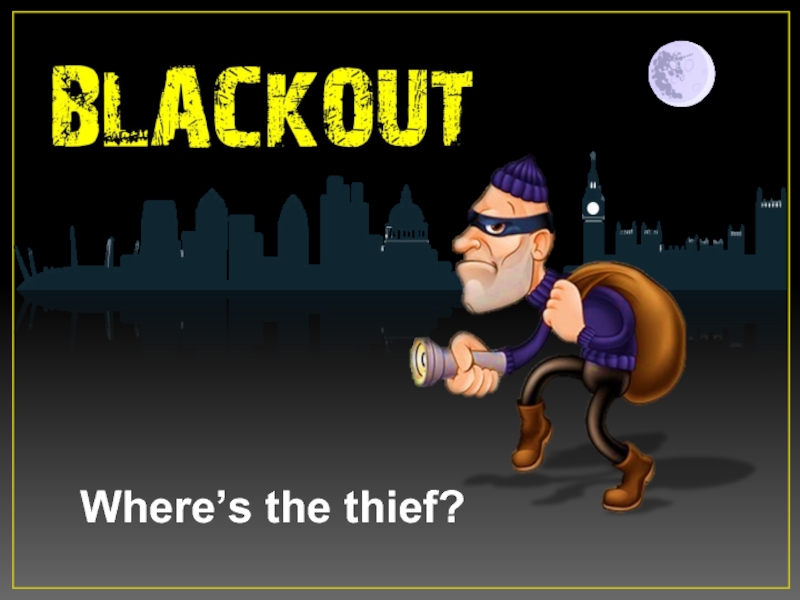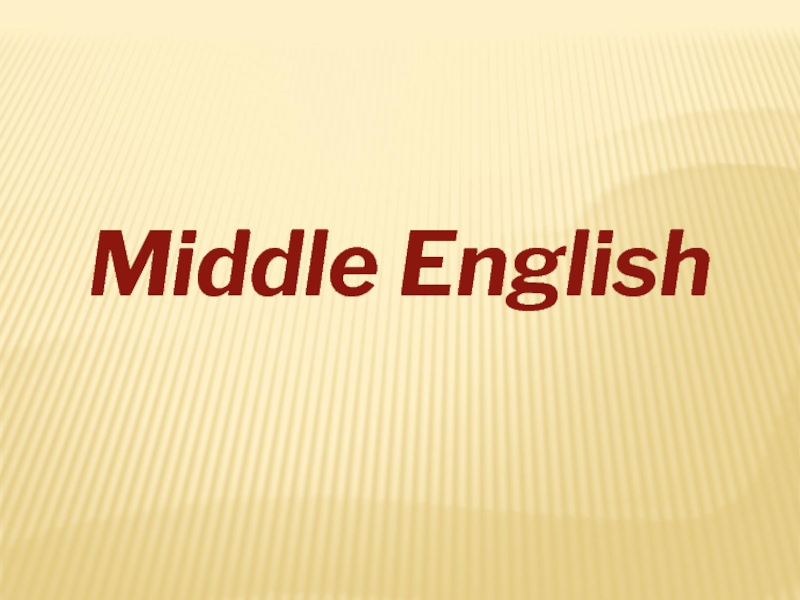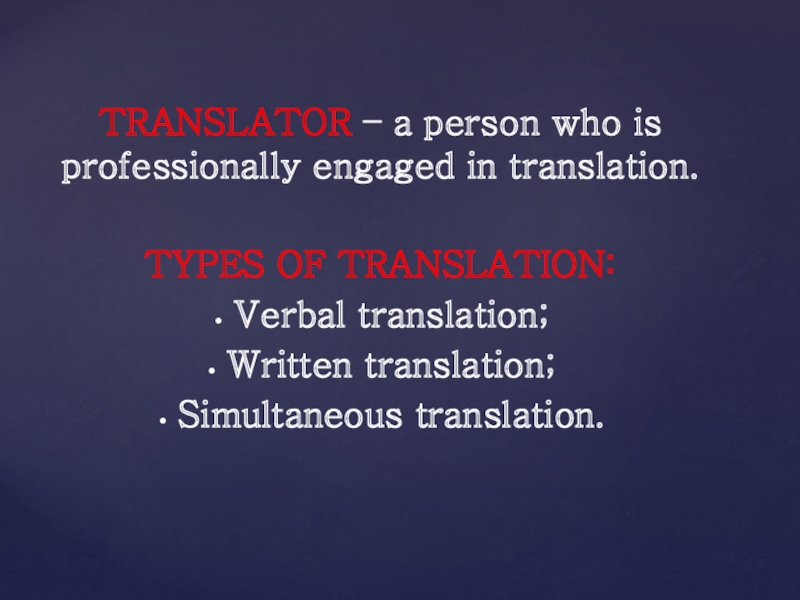- Главная
- Разное
- Дизайн
- Бизнес и предпринимательство
- Аналитика
- Образование
- Развлечения
- Красота и здоровье
- Финансы
- Государство
- Путешествия
- Спорт
- Недвижимость
- Армия
- Графика
- Культурология
- Еда и кулинария
- Лингвистика
- Английский язык
- Астрономия
- Алгебра
- Биология
- География
- Детские презентации
- Информатика
- История
- Литература
- Маркетинг
- Математика
- Медицина
- Менеджмент
- Музыка
- МХК
- Немецкий язык
- ОБЖ
- Обществознание
- Окружающий мир
- Педагогика
- Русский язык
- Технология
- Физика
- Философия
- Химия
- Шаблоны, картинки для презентаций
- Экология
- Экономика
- Юриспруденция
The problem of the category of mood in modern english презентация
Содержание
- 1. The problem of the category of mood in modern english
- 2. Mood is the grammatical category of the
- 3. There is no unity of opinion concerning
- 4. THE INDICATIVE MOOD The indicative mood is
- 5. EXAMPLE: Water consists of oxygen and hydrogen.
- 6. THE SUBJUNCTIVE MOOD The subjunctive mood represents
- 7. We use subjunctives mainly when talking about
- 8. PRESENT SUBJUNCTIVE Use: To express expectation, supposition
- 9. PAST SUBJUNCTIVE Use: To express expectation, supposition
- 10. FUTURE SUBJUNCTIVE Use: To express expectancy about
- 11. THE IMPERATIVE MOOD The imperative mood represents
Слайд 2Mood is the grammatical category of the verb reflecting the relation
of the action denoted by the verb to reality from the speaker's point of view.
Слайд 3There is no unity of opinion concerning the category of mood
in English.
In general the number of English moods in different theories varies from two to seventeen.
In my project the indicative, imperative and subjunctive moods are considered.
In general the number of English moods in different theories varies from two to seventeen.
In my project the indicative, imperative and subjunctive moods are considered.
Слайд 4THE INDICATIVE MOOD
The indicative mood is the basic mood of the
verb. Morphologically it is the most developed system including all the categories of the verb.
Semantically it is a fact mood. It serves to present an action as a fact of reality. It is the «most objective» or the «least subjective» of all the moods. It conveys minimum personal attitude to the fact.
Semantically it is a fact mood. It serves to present an action as a fact of reality. It is the «most objective» or the «least subjective» of all the moods. It conveys minimum personal attitude to the fact.
Слайд 5EXAMPLE:
Water consists of oxygen and hydrogen.
An actual fact is denoted, and
the speaker's attitude is neutral.
Слайд 6THE SUBJUNCTIVE MOOD
The subjunctive mood represents an action as a 'non-fact',
as something imaginary, desirable, problematic, contrary to reality.
Слайд 7We use subjunctives mainly when talking about events that are not
certain to happen. For example, we use the subjunctive when talking about events that somebody:
wants to happen
anticipates will happen
imagines happening
Kinds of Subjunctive:
Present Subjunctive
Past Subjuctive
Future Subjunctive
wants to happen
anticipates will happen
imagines happening
Kinds of Subjunctive:
Present Subjunctive
Past Subjuctive
Future Subjunctive
Слайд 8PRESENT SUBJUNCTIVE
Use:
To express expectation, supposition and a statement about something that
does not fit with reality in the present.
Example:
I wish (that) he called me now
Reality:
He doesn’t call me now
Example:
I wish (that) he called me now
Reality:
He doesn’t call me now
Слайд 9PAST SUBJUNCTIVE
Use:
To express expectation, supposition and a statement about something that
does not fit with reality in the past.
Example:
I wished he hadn’t gone yesterday
Reality:
He went yesterday
Example:
I wished he hadn’t gone yesterday
Reality:
He went yesterday
Слайд 10FUTURE SUBJUNCTIVE
Use:
To express expectancy about event / situation that may occur
/ could not have happened in the future
Example:
X: “Will you visit me tonight?”
Y: “ No, I won’t” (reality)
X: “ I wish you would visit me tonight” (subjunctive)
Example:
X: “Will you visit me tonight?”
Y: “ No, I won’t” (reality)
X: “ I wish you would visit me tonight” (subjunctive)
Слайд 11THE IMPERATIVE MOOD
The imperative mood represents an action as a command,
urging, request, exhortation addressed to one's interlocutor.It is a direct expression of one's will. Therefore it is much more 'subjective' than the indicative mood. Its modal meaning is very strong and distinct.
The imperative mood is morphologically the least developed of all moods.
The imperative mood is morphologically the least developed of all moods.
